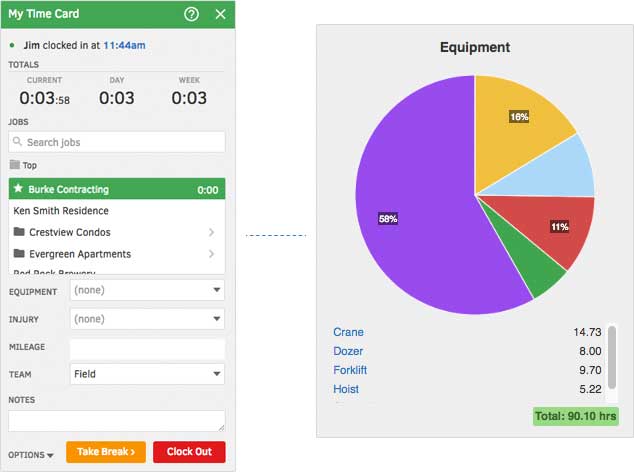How QuickBooks Time users can make the most of custom fields
Need to track more than employee time? You’re not alone! Data-driven companies are flocking to QuickBooks Time to take advantage of our Custom Fields feature. For a more detailed look at how your team is spending their time, try the QuickBooks Time Custom Fields add-on.
Custom Fields is a powerful tool within QuickBooks Time that can revolutionize the way you run your business. You can create one field that applies to all your jobs. For example, instead of creating an “install” sub-job code and a “repair” sub-job code for each of your clients individually, you can create one field called “task.” Just include “install” and “repair” in the task list, and it will show up on your time card for all customers!
Custom Fields allow you to easily set up fields on your employees’ time cards that capture any activity you need to keep track of beyond time tracking, like tasks, equipment, or expenses.
Employees fill out the fields as they track time, so at the end of the day, you can run reports to understand exactly how time is spent on your business.

